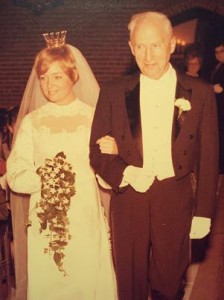My husband was a cerebral guy, well-read in history, politics, current events, literature, almost everything. His intellect was one of the things that first attracted me to him, probably because most of us look for a mate who’s equipped where we are lacking.
But Nate proved over the years that he was also capable of developing an adventurous streak. It was only a streak, since adventure wasn’t his natural bent. But once he was married and raising a family, the situation often called for it.

 During our dating years, if I’d have told him he’d be white-water rafting down the Colorado River or carv- ing pumpkins in his business suit or compet- ing to win at kid’s games, he’d have had a good laugh.
During our dating years, if I’d have told him he’d be white-water rafting down the Colorado River or carv- ing pumpkins in his business suit or compet- ing to win at kid’s games, he’d have had a good laugh.
Hindsight is 20/20, and when I look back at our shared history, I see how adaptable he was. He took to marriage well, and never allowed me off the pedestal he put me on the day we were married.
 He got “goofy” when he sensed his kids would appreciate it and if coaxed, would set aside serious pursuits to clown around.
He got “goofy” when he sensed his kids would appreciate it and if coaxed, would set aside serious pursuits to clown around.
Most widows look back and appreciate their men in fresh ways after they’ve gone. It’s the old adage that we don’t fully appreciate what we have till we’ve lost it. I’m no exception and am thankful for Nate in all kinds of ways I never acknowledged while he was alive. Like his willingness to adapt. Thoughts of “wishing him back” stem from a desire to express gratitude for what I left unsaid at the time.
In thinking about this, I also think of the most important relationship in my life, the one with the Lord. Am I noticing and being grateful for his many blessings? And am I following through with voiced appreciation to him? Thankfully with God, it’s never too late to verbalize thanks.
Nancy Leigh DeMoss, in her book Choosing Gratitude, says there are two parts to being grateful: realizing it and voicing it. “Gratitude is learning to recognize [#1] and express [#2] appreciation for the benefits we receive from God and from others.” That means being intentional about letting what’s in our hearts “come out!” *
Step 1. Step 2.
Most of us don’t have trouble identifying reasons to be thankful. It’s that second step where we fall short, the one I regret not stepping into more often with Nate.
Scripture consistently exhorts us to be thankful, and one verse in particular (below) hints at moving the message from inside-to-outside. First get a joyful heart (by being grateful) and then voice thanks. Always.
“Sing and make music from your heart to the Lord, always giving thanks…” (Ephesians 5:19-20)
*page 169







